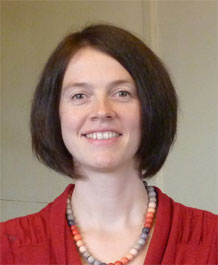



Professor Patrick Devine-Wright, Geography, University of Exeter Professor Patrick Devine-Wright is an Environmental Social Scientist at the University of Exeter with a background in Environmental Psychology and Human Geography. He specialises in researching significant, policy-relevant environmental problems using an interdisciplinary collaborative approach that is theoretically informed and has clear pathways to impact. He has focused on researching issues of social acceptance and community engagement with sustainable energy transitions, in particular controversial technology projects such as wind farms and high voltage power lines. He works closely with policy makers, industry and civil society groups and is currently Lead Author of the IPCC Working Group 3 on Climate Mitigation, Chair of the Devon Net Zero Task Force and a non-Executive Director of Exeter Community Energy. He contributes to the International Energy Agency’s Task 28 on Social Acceptance of Wind Energy and has been a member of the National Advisory Group for EirGrid (the Irish electricity grid operator) since 2013. He is a member of the Peer Review Group for the Department for Business, Enterprise and Industrial Strategy.
Dr Alice Moseley, Senior Lecturer in Politics, University of Exeter
Dr Alice Moseley is a political and public policy researcher who specialises in civic engagement, political participation and behaviour change. Her previous work examines the effectiveness of strategies for fostering civic behaviour in domains such as recycling, volunteering and political engagement. This research has highlighted the role that public deliberation can play in generating solutions to collective action problems, including lessons for the conduct and management of public deliberations, such as how best to moderate discussions and integrate evidence to inform deliberative processes. Her work also identifies effective strategies for enhancing citizen engagement and pro-social/ pro-environmental behaviour and for increasing access to the political process in under-represented groups.
Dr. Rebecca Sandover, Lecturer, University of Exeter
Dr. Sandover is a Human Geographer who undertakes Engaged Research focused on Social Food Networks. Using a knowledge co-production approach, she has in recent years been investigating action toward the formation of sustainable food networks in the South West UK. Her approach has been focused on knowledge coproduction and exchange in order to build capacity in local food partnerships. Her research is particularly focused on building local food partnerships with local authorities, boosting access to sustainable local food, addressing food insecurity and addressing food policy related issues of health and wellbeing. She recently led research on three collaborative and interdisciplinary food networks projects in Devon and Cornwall, including the ESIF funded Food for Change Project. Rebecca is a Trustee of Food Exeter; a Fellow of The Royal Geographical Society (with IBG) and has been the Secretary of Food Geographies Working Group (now Food Geographies Research Group) from 2015-2021.
Dr. Fionnguala Sherry-Brennan, Research Fellow, University of Exeter
Dr. Sherry-Brennan is researcher with expertise in qualitative and quantitative methods to find out how people engage with a wide range of renewable energy technologies and sustainability issues across diverse spaces and places. Her recent experience includes Evaluating Devon’s first climate assembly -Exploring co-creation in the implementation of sustainable heating technologies (SHIFFT Interreg project: shifftproject.eu/) -Looking into social acceptance and sense of place as part of the UK’s industrial decarbonisation research and innovation center (IDRIC). Fionnguala has published in various journals including Energy Policy, Energy Research and Social Science (ERSS), and the Journal of Environmental Policy and Planning (JEPP). She is interested in sustainability issues in the round and has put this into practice as a designer and builder of sustainable, small living spaces, a.k.a. Tiny Houses.

